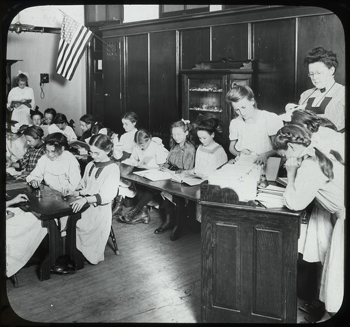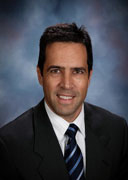
When I read about legislative efforts like Florida’s Senate Bill 6, I like to think back to the one-room school houses of our nation’s past. The kind where a wood stove in the corner heated the room in the winter and an open window cooled it in the warmer days of spring and fall. When kids wrote on slates and a female teacher wasn’t allowed to get married. I find it hard to imagine, as the kids scribbled away on their slates, that a state legislator would march into her room and start berating her because the students weren’t learning–and threaten to take away some of her already meager pay.
I guess the reason I find this such an image hard to swallow is that I can’t imagine our grandparents or great grandparents placing the blame for a student’s failures on anyone other than the student. Johnny can’t read? He isn’t applying himself. Susie can’t divide? She doesn’t have the aptitude.

It always astonishes me that Republicans, the party of personal responsibility as they once liked to fashion themselves in the pre-Bush welfare-hating era, has suddenly decided that the solution to student failure is to cut teachers’ salaries. If we pay teachers less, they will have to work harder to get the students to pass and earn more money through some kind of merit pay system. The thinking behind Senate Bill 6 and other similar proposals throughout the country is rooted in the idea that the teacher is the cause of success or failure.
Now, there is a lot of evidence that a single teacher can make a huge difference in achievement in a classroom. There is no denying that. But there is also a lot of evidence that poverty, attendance, transience, and other home factors make a huge difference too. Having lived and worked in high-poverty schools, I can tell you what happens. Kids quit coming. They take a week off for illness and can’t go to the doctor. They show up stressed out. They learn horrible coping skills in their dysfunctional homes that cause them to be behavior problems at school. Many of the effects of poverty on learning can be read about in Erik Jensen’s brilliant book, “Teaching with Poverty in Mind.”
And yes, some gifted, beautiful, and blessed individuals can overcome the devastating effects of poverty. But they are the gifted few, the Jamie Escalantes of the world. Thank god we have them. But they don’t grow on trees. People like Jeb Bush see teachers like these and wonder, why can’t all teachers do that? It’s like watching Le Bron James and saying, why can’t my kid play basketball like that? Some of what great teachers do can be learned, but it takes tremendous heart, soul, love, patience, and frankly a lot of other qualities that just don’t come around very often in the human race. And like great athletes, they can’t do it forever. It takes a toll on one’s body and soul. It’s difficult, grueling work. And many people who have those rare gifts and skills are doing other things that pay them a lot more money (because what they do works in other places besides schools, too, people). Do we want to cut their pay? Seriously?
Look, learning is about the learner. Great teachers understand that. It’s about the student. And it has been since the one room schoolhouse. If legislators want to do something real to improve student performance, they should focus on things that support student learners… like getting them the social services they need, the food they need, the stable homes they need, the mental health care they need. Get them to school. Get them fed. Get them a doctor for hell’s sake. Keep them out of trouble. If our legislators focused on doing these kinds of things, instead of playing cynical political games designed to destroy the teacher’s union, we would see some real progress.
![]()
Dave Riegel a high school principal in Ohio and a FlaglerLive contributor. Reach him at daveriegel@yahoo.com.





























Leave a Reply